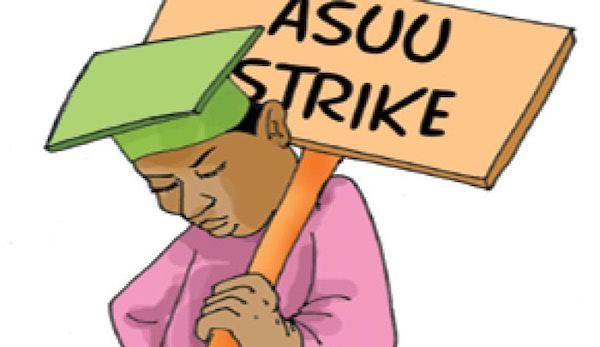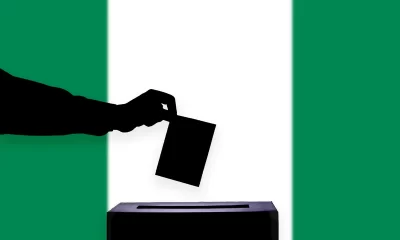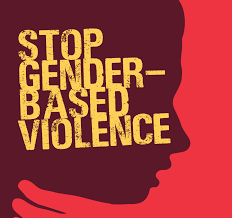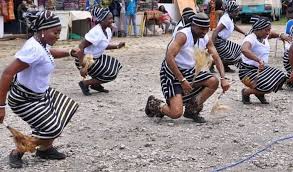OPINION
Mini-gods Ruling Nigeria

By Olabisi Deji-Folutile
Nigerians had an idea of why the FG-ASUU impasse has lingered for so long from the conduct of the Education Minister Adamu Adamu on Monday. For some Nigerians, that was probably their first time seeing the minister publicly display interest in the crisis bedevilling Nigeria’s education sector.
Throughout the nine-month strike embarked upon by members of the Academic Staff Union of Universities in 2020, the minister remained in the background, most times, speaking through the junior minister in the ministry.Perhaps, the minister should have continued to keep to himself and save some of us from the unnecessary drama we saw at his meeting with the leadership of the National Association of Nigerian Students (NANS) in his office in Abuja on Monday.
Nigeria’s Columbian trained minister of education who is also widely known as a polyglot walked out of a meeting with the university students, who were protesting over the incessant strikes by the Academic Staff Union of Universities (ASUU).
The students had barricaded the entrance of the federal ministry of education at the Central Area in Abuja. So, the minister decided to meet with the leadership of the student body.
NANS national president, Comrade Sunday Asefon, had told the minister that students were the victims of the FG-ASUU crisis. He also said the ASUU strike was killing Nigeria’s education and that the government should find a lasting solution to the problem. He also pointedly told the minister that their parents could not afford to send their children to the UK as the minister did to his own children.
He had said: “This is your second term in office, your salary will be paid. The salaries of the lecturers will be paid. We want to really know what is really happening.
“Honourable minister, you celebrated your son who graduated from a university outside this country. We appreciate that. Our parents do not have that money to send us outside the country, but we are in this country. We should enjoy what we are paying for.
“We want adequate funding of education in this country, honourable minister, our message is that we want to go back to class. We want the federal government and ASUU to as a matter of urgency, call off this strike while negotiation continues. We want to go back to classes, if not this will be more than #EndSARS protest.”
I guess the minister must have been piqued by the half-truths and perhaps absolute falsehood in the NANS president’s speech and felt the best thing he could do was to rubbish him. In a terse style, he referred the students back to their lecturers. “Perhaps the only point that you made that is even worthy of attention is that you said students should be involved in this (discussion) and I think it’s probably a good thing.
“And it’s the only thing I’m going to take from everything you have said here. Thank you.”
The minister then stood up and walked out of the meeting.
Truth be told, the student union president failed to do his homework well. Firstly, I am not aware that the education minister recently celebrated any of his children’s graduation on social media. Yes, his daughter, Barrister Fatima (Zara) Adamu got married at a ceremony in Azare, Bauchi State, early this year and that was in the news. His medical trip to Germany to fix his health issues also got some media attention, but there was nothing on him celebrating any child graduating from a foreign university.
The student union president must have been referring to the Executive Secretary of the National Universities Commission, Prof. Adamu Rasheed, whose son bagged a PhD in Engineering from the University of Aberdeen, Scotland, in 2017. The graduation picture went viral with Nigerians criticising the former Bayero University, Kano vice chancellor for sending his son abroad when Nigeria’s education system is in decay.
Secondly, another blunder by the NANS leader is his verdict that since their parents cannot send them to universities abroad, they should be allowed to enjoy what they are paying for here in Nigeria. That is about the most ridiculous thing I have ever heard! It is almost unbelievable that a student union leader in Nigeria could utter such a statement – Nigerian students in federal universities paying tuition? Which tuition? How much are they paying? Was he referring to the N90,000 accommodation fee students pay or registration fee for courses as tuition? If the leadership of the Nigerian university body does not know what constitutes tuition, then, that is worrisome indeed.
I have always said it and it is worth repeating. Public funding of tertiary education by the Federal Government is one of the major problems confronting the federal university system in this country. Nigeria can simply no longer afford to provide free tertiary education. People often refer to the humongous salaries of our lawmakers and use that as a justification for free tertiary education. But, the truth is there is nothing very big about Nigerian lawmakers’ salaries. The average salary of a senator is about N1.5 million while that of a member of the House of Representatives is N1.3m. Their ostentatious lifestyle isn’t a product of their legitimate earnings. Most often, it is a product of graft, pure corruption and sometimes outright theft. Lawmakers, like other public officers in Nigeria, are just living fat on the country’s corrupt system which is very sad though.
As rich as they are, the US, UK and many other developed countries in the world are not providing free tertiary education for their citizens. They can give grants, scholarships and loans but not free university education. And in Scandinavian countries where tertiary education is free, the citizens pay for it in heavy tax. How can Nigeria, whose national budget is comparable to what just a company in the US, Apple spends on R&D give quality, free university education? The earlier the students understand this and begin to drive conversation around how best Nigeria can close funding gaps in its public tertiary institutions, the better it would be for everyone.
However, the NANS president’s limited knowledge notwithstanding, the reaction of the minister was very rude and condescending. Adamu behaved like a mini-god. His demeanour towards the students was like that of a master to a slave.
The viral video of that encounter shows a very arrogant minister who thinks he is doing students a favour by even giving them attention in the first instance. He acted like a god, the omnipotent, the kabiyesi (all in all), the one that speaks and no one dares to talk, the almighty of Nigeria’s education sector who should be worshipped and adored.
Do we now know why Nigeria’s education sector is getting worse by the day? The people at the helm of affairs don’t care. They don’t feel the heat. They are too disconnected. In a normal clime, the minister should be having sleepless nights on how to find a solution to the problem of the ASUU-FG impasse. He should be seen to be leading a conversation with stakeholders on how to find permanent solutions to the continuous strikes by university lecturers. The minister should be lobbying the student body to make them understand the need to introduce tuition in our public universities.
Unfortunately, this is not the first time the minister would be treating Nigerians with disdain. He exhibited the same attitude when the whole world was working out solutions to the problem posed to learning by COVID-19. All through that period, the minister appeared quite unruffled. He was simply carrying on as if all was well, hiding under the ASUU strike. In fairness to the minister, his attitude is typical of many people in power. Nigerian leaders consistently display contempt, impunity and disdain for the concerns, fears and will of the people. They behave like what my late mum would describe as the attitude of “who can catch me, who can query me.”
But I don’t blame them. I blame the citizenry that worships and adore the people in power just to get the crumbs from their “masters’ tables.” Watching the video, one could see some staff of the ministry trying to prevail on the students not to complain. They were too afraid of the minister, they did not want anything that would further provoke him.
The same reason is why a ministry would organise a bogus reception and chant “Mummy Oyoyo,” the kind we saw when the minister of finance, Zainab Ahmed, got a second term appointment. We are just too used to hero-worshipping in this part of the world, so people in positions of authority in all spheres- get away with murder- robbery in broad daylight, etc. Maybe, it’s a cultural thing, whatever it is, such an attitude prevents us from holding our leaders accountable for their misdeeds.
The ASUU strike has been affecting students’ lives since 1999. Now students are saying their interest should be considered, they should be part of the discussion between the federal government and ASUU to find a lasting solution to the matter, what is wrong with that? The minister could have told the students’ government’s efforts at solving the problem and corrected all the wrong misrepresentations. That is the least expectation from a servant-leader.
As for NANS, I think the leadership should work on its public speaking technique. Understandably, the students have every right to be emotional and angry with the Nigerian system, but those in power can easily capitalise on their poor public presentation skills and dismiss them, just like the minister did on Monday.
Olabisi Deji-Folutile is Editor-in-Chief, franktalknow.com and member, Nigerian Guild of Editors. Email: bisideji@yahoo.co.uk.
OPINION
Coup in Guinea-Bissau and the Dilemma of ECOWAS

By Hakeem Jamiu
In his seminal work, Political Order in Changing Societies (1968), Professor Samuel P Huntington argues that political order is essential for societal development. He emphasises that strong, adaptable political institutions are necessary to manage conflicts and meet growing societal demands during periods of rapid change.
Huntington warns that failure to adapt swiftly to societal shifts often results in political decline and instability.
These insights offer a valuable perspective for analysing the recent palace coup in Guinea-Bissau, a country on the verge of greater unrest.Between 24 and 26 September, I was in Guinea-Bissau for the Economic Community of West African States (ECOWAS) pre-summit as the lead facilitator nominated by the Amandla Institute for Policy and Leadership Advancement (AIPLA).
During this time, I predicted that political upheaval was imminent. It was no surprise, therefore, when, on 26 November, a palace coup took place, leading to the forced evacuation of former President Goodluck Jonathan, head of the West African Elders Forum Election Observation Mission.
He described it as a “ceremonial coup,” an unusual act in which President Umaro Embaló himself announced the coup, despite claiming to be under arrest. This move was clearly staged to prevent the announcement of election results, ultimately undermining democracy in the country.
Embalo’s strategy to consolidate power began long before the coup. He had previously excluded his main challenger, PAIGC’s Domingos Simões Pereira from the electoral process, through judicial manipulation by the Supreme Court, which barred Pereira from contesting the election.
Pereira, a former prime minister, had supported the independent candidacy of lawyer Fernando Dias. Despite his official term ending on 27 February, Embaló remained in office, citing a different inauguration date.
His controversial decision to seek re-election, despite initial promises not to, prompted public protests, which were suppressed by force, with activists arrested and opposition movements restricted.
The road to Bissau, however, was not just fraught with political instability but also physical danger. As I journeyed from Zinguinchor to Bissau, a typically two-hour trip extended to eight hours due to the dilapidated roads, squeezed between rising rivers. The road was perilous, especially when we learnt of the armed insurgents operating along the route.
The driver, having initially misled us about the condition of the road, almost abandoned us at the Senegalese border. Fortunately, immigration officials ensured that we continued. Later, it was revealed that the road’s poor condition has been intentionally kept so as to prevent insurgents from reaching the capital easily.
The coup, led by General Horta Inta-A, just a day before the announcement of presidential election results, claimed that it was necessary in order to prevent “narcotics traffickers” from manipulating the election.
Both President Embaló and opposition candidate Fernando Dias claimed victory, with Dias seeking asylum in the Nigerian embassy, due to credible threats to his life. The people’s resolve for change had been underestimated by Embaló, who believed he could easily eliminate the opposition.
Despite the country’s dire economic situation, with deteriorated infrastructure and widespread poverty, the people of Bissau maintained a remarkable sense of joy.
Young men and women danced in the streets at 3 a.m., while others gathered at the hotel we stayed in, socialising late into the night. These youthful social gatherings reflect a society aware of global trends, including political unrest, despite being influenced by their leader’s poverty politics.
The summit, held at the Royal Hotel in Bissau from 24 to 26 September, focused on the future of ECOWAS, in its 50th anniversary. The theme, “Political Stability, Peace, and Security in West Africa,” seemed ironically prescient.
The dialogue, involving the civil society, youths, and security experts, examined the challenges facing ECOWAS, particularly Unconstitutional Changes of Government (UCG).
My prediction that Guinea-Bissau would soon face political turmoil was echoed by ECOWAS’ General Ojabo, who remarked that his troops were primarily tasked with “guard duties at the homes of politicians,” reflecting the mistrust between Guinea-Bissau’s political class and its military. “The minute ECOWAS pulls out of GB, there will be chaos,” he warned, a grim foreshadowing of what was to come.
The coup, led by General Horta Inta-A, just a day before the announcement of presidential election results, claimed that it was necessary in order to prevent “narcotics traffickers” from manipulating the election. Both President Embaló and opposition candidate Fernando Dias claimed victory, with Dias seeking asylum in the Nigerian embassy, due to credible threats to his life. The people’s resolve for change had been underestimated by Embaló, who believed he could easily eliminate the opposition.
This turned out to be a grave miscalculation, and the coup was a direct result of the president’s failure to meet the people’s expectations. As Huntington’s theory suggests, political instability often arises when rising societal expectations are unmet, leading to frustration and disorder.
The African Union (AU) has also suspended Guinea-Bissau from its activities, calling for respect for the electoral process. The United Nations has urged restraint and respect for the rule of law. The coup in Guinea-Bissau presents another challenge to ECOWAS’s credibility, especially as the region has seen an alarming rise in military takeovers. The coup belt, stretching across West Africa, is increasingly a source of concern.
ECOWAS, having strongly condemned the coup, has suspended Guinea-Bissau from its decision-making bodies and is advocating for the restoration of constitutional order in the country. Meanwhile, the African Union (AU) has also suspended Guinea-Bissau from its activities, calling for respect for the electoral process.
The United Nations has urged restraint and respect for the rule of law. The coup in Guinea-Bissau presents another challenge to ECOWAS’s credibility, especially as the region has seen an alarming rise in military takeovers. The coup belt, stretching across West Africa, is increasingly a source of concern.
Guinea-Bissau, with its fragile political and economic situation, faces considerable instability. With a population of only two million and a per capita GDP of $670, the country ranks among the poorest in the world. Around 70 per cent of the people live below the poverty line, with limited access to essential services such as healthcare, roads, education, and sanitation. As the political crisis deepens, there are concerns that drug trafficking could intensify, further destabilising the region.
For ECOWAS, the challenge is clear: it must persist in applying diplomatic pressure on the coup leaders to restore constitutional order. Military force alone is insufficient; what is needed is a sustained diplomatic strategy supported by respected statesmen.
ECOWAS needs to rediscover its role as a facilitator of West African peace, rather than as an end in itself. The organisation must act consistently and enhance its operational capabilities to tackle the root causes of instability. Unconstitutional changes of government are not merely political anomalies but symptoms of systemic governance failures that must be addressed to prevent further crises across the region. The time for action is now.
Hakeem Jamiu, an ECOWAS facilitator, writes from Ado-Ekiti.
OPINION
A silent Emergency: Soaring Costs of Diabetes Care Spark Alarm

By Folasade Akpan
For Mrs Schola Effiong, a 58-year-old confidential secretary in Calabar, managing diabetes in today’s economy feels like “climbing a hill that only gets steeper”.
Diagnosed in 2009, she said her monthly expenditure on insulin, tablets, laboratory tests and monitoring supplies now exceeds ₦150,000.
“You cannot stop taking the drugs, yet the cost keeps going up.
“Sometimes I do not have the money to buy some of them at the same time,” she said.
Her struggle mirrors the experiences of thousands of Nigerians at a time when experts warn that diabetes is becoming a major public health concern.
According to a 2018 national meta-analysis by Uloko et al.
, titled “Prevalence and Risk Factors for Diabetes Mellitus in Nigeria: A Systematic Review and Meta-Analysis”, Nigeria’s diabetes prevalence stands at 5.7 per cent, representing 11.2 million adults.The authors defined diabetes mellitus as a metabolic disorder of chronic hyperglycaemia caused by absolute or relative insulin deficiency and associated with disturbances in carbohydrate, protein and fat metabolism.
The study, which pooled data from numerous research works across the country, revealed wide regional disparities.
The prevalence rate was 3.0 per cent in the North-West, 5.9 per cent in the North-East, and 3.8 per cent in the North-Central, respectively.
The rates were higher in the southern part of the country: 5.5 per cent in the South-West, 4.6 per cent in the South-East, and 9.8 per cent in the South-South.
Experts say these patterns reflect changing lifestyles, rapid urbanisation and limited access to routine screening.
However, for many patients, statistics tell only a fraction of the real story.
Mr Offum Akung, a 57-year-old teacher in Cross River, said he had to ration his drugs because prices kept rising faster than his salary.
“I spend over ₦40,000 a month and still cannot buy everything on my prescription.
“I rely mostly on Glucophage now; when money allows, I add Neurovite Forte; diabetes management has become more difficult than the disease itself,” he said.
He appealed for government intervention, saying many patients were already “giving up”.
The Second Vice-President of the Diabetes Association of Nigeria, Mr Bernard Enyia, said the economic situation had pushed many Nigerians with diabetes into dangerous coping methods.
He said that he once managed his condition with about ₦70,000 monthly, but currently spends more than ₦180,000.
“Insulin has become something you pray for, while some people are sharing doses or skipping injections.
“Once you break treatment, the complications come quickly.”
Enyia, who lost his job as a health worker in 2017 due to frequent hospital visits, described the emotional toll as immense.
“It affects your finances, your social life, your marriage — everything. Many Nigerians with diabetes are quietly drowning,” he said.
Globally, concerns are also rising.
The World Health Organisation (WHO) estimates that more than 24 million adults in Africa are living with diabetes, a figure projected to rise to 60 million by 2050.
Marking World Diabetes Day 2025, WHO Regional Director for Africa, Prof. Mohamed Janabi, warned that rising obesity, lifestyle changes and weak health systems were fueling an “unprecedented wave of diabetes” across the continent.
He urged governments to prioritise access to affordable insulin, diagnostics and long-term care.
More so, pharmacists say they are witnessing the crisis firsthand.
The Senior Vice-President, Advantage Health Africa, Mr Adewale Oladigbolu, said many patients were no longer able to maintain regular medication schedules.
“People buy drugs today and skip them tomorrow because they do not have money.
“With non-adherence, they never reach therapeutic goals.”
Oladigbolu, a Fellow of the Pharmaceutical Society of Nigeria, said that locally manufactured metformin remained in high demand due to affordability, but insulin-dependent patients faced the harshest burden.
He stressed that diabetes care extended far beyond drugs.
“You need glucometers, strips, blood pressure monitors and regular tests.
“In countries where insurance work, patients do not think about the cost; in Nigeria, they pay for everything out of pocket,” he said.
He called for diabetes care to be covered under health insurance to reduce the financial burden on patients.
President of the Diabetes Association of Nigeria, Prof. Ejiofor Ugwu, described the rising cost of treatment as “a national crisis hiding in plain sight.
He said insulin, which sold for about ₦3,500 four years ago, presently costs ₦18,000 to ₦22,000 per vial.
“Test strips that were ₦2,000 now sell for ₦14,000, while glucometers have risen from ₦5,000 to over ₦25,000.
“On average, a patient now needs between ₦100,000 and ₦120,000 every month. Imagine earning ₦50,000 and being asked to spend twice that on one illness.”
He warned that between half and two-thirds of Nigerians with diabetes remain undiagnosed.
“We are seeing more kidney failure, more limb amputations, more blindness.
“These are late presentations caused by delayed or inconsistent treatment.”
Ugwu urged the Federal Government to urgently subsidise essential anti-diabetic medications and remove taxes on their importation.
“Most of these drugs are produced outside the country.
“Once you add import duties and other charges, prices become unbearable; subsidies and tax waivers could drop costs by at least 30 per cent,” he said.
He also called for expansion of the National Health Insurance Authority (NHIA) to cover a wider range of anti-diabetic medicines, glucose meters and strips — none of which are currently covered.
For many Nigerians, however, the struggle continues daily.
Across households, clinics and pharmacies, the message is the same: as Nigeria’s diabetes prevalence rises and treatment costs soar, more patients are slipping through the cracks — some silently, others painfully — while waiting for meaningful intervention.
In all, stakeholders say diabetes is a national emergency; people are dying quietly because they cannot afford medicine; hence the urgent need for relevant authorities to make anti-diabetic medications accessible and affordable.(NAN)
| ReplyReply allForwardAdd reaction |
OPINION
Is Community Parenting Still Relevant?

By Dorcas Jonah
In the Nigerian culture, extended families and communities play a crucial role in care-giving, instilling values, and supporting the development of children.
This cultural heritage of community parenting emphasises shared responsibility in raising children.
But in contemporary Nigeria, this age-long practice is facing enormous challenges due to modernisation.
In scrutinising this trend, some parents are of the view that community parenting helps in instilling morals and curbing social vices among children and youths, while others believe it is outdated.
Some parents are of the belief that their children are their responsibility; so they do not tolerate others correcting their children.
By contrast, others say that community parenting, when done with good intentions, can help raise a better society.
Mr Peterson Bangyi, a community leader in Dutse Makaranta, said that community parenting was the bedrock of raising a child.
He said the adage: “it takes a village to raise a child”, remained a powerful principle in contemporary society.
According to him, by Nigeria’s cultural norms and values, a child is owned by everyone; therefore, the grandparents, aunts, uncles, and neighbours actively contribute to raising children.
“This approach fosters a sense of belonging and ensures children grow up with diverse role models.”
Bangyi said that the extended families practiced by more communities were the backbone of parenting.
“But modernisation has taken away this practice as most families do not want people to come close to their children,’’ he said.
Mrs Monica Umeh, a mother of two, emphasising on the importance of community parenting, said that it played significant role in shaping her upbringing as a child and young adult.
Umeh advised that when correcting other people’s children, it is essential to do so with love and good intentions, without any form of bitterness.
“I am a strong advocate of community parenting as long as it is done with love and good intentions.
“I believe no parent can single-handedly raise a child without the support of others,’’ he said.
Mr Temitope Awoyemi, a lecturer, said that community parenting was crucial and could not be over-emphasised.
He said that community parenting helped society in inculcating strong moral values in children and youths, adding that modern life could be isolating for parents.
Awoyemi said that strong community support networks had been shown to lower parental stress levels and promote a more optimistic approach to raising children.
“It also ensures that a child receives guidance and correction from various adults, providing a broader, more consistent moral and social baseline that might be missed by parents who are busy with work.
“Community parenting encourages collaborative, interdisciplinary support from various community members and agencies in addressing a child’s developmental needs comprehensively.
“It focuses on prevention of long-term problems and celebrating individual strengths,’’ he said.
Awoyemi said that as the society continued to evolve, community parenting could adapt to ensure children benefitted from both cultural roots and contemporary innovations.
Mr Fortune Ubong, a cultural enthusiast, attributed the increasing crime rate in Nigeria to lack of community parenting that had extended to schools, and government institutions.
According to him, community parenting remains the foundation of every child’s moral upbringing.
“Most parents are now focused on earning a living and improving their lifestyle, in the process abandoning their primary duty of molding and guiding their children; this is where community parenting plays a greater role,” he said.
However, Mrs Joy Okezia, a businesswoman, said that given the recent developments in the country, correcting a child should be the sole responsibility of their parents.
Okezia said that she preferred to correct her children herself as she knew them better than anyone else.
She also noted that with the rising insecurity in the country, intervening to correct a child could pose a significant risk to the person.
Mrs Ijeoma Osita, a civil servant, also shared Okezia’s view, saying that a child’s behaviour was shaped by their family upbringing.
She said that if a child was not taught to love and respect others at home, an outsider would have little impact in correcting such a child.
Osita emphasised that parents should in still in their children the values of love and respect regardless of their status or background.
According to her, a child brought up with good values is less likely to misbehave well.
She cited the Holy Bible, saying, that says: “Train up a child in the way they should go, and when they are old, they will not depart from it’’.
Osita said that community parenting remained a vital aspect of Nigerian culture, promoting shared responsibility and resilience among families.
He opined that while modernisation posed challenges, blending traditional practices with modern strategies offered a promising path forward.
Observers say robust community connections are linked to better social-emotional development, academic achievement, and overall well-being for children.
They say that in modern society, amidst the digital world, economic instability, and busy work schedules, parents face pressures, making community support systems fundamental.
All in all, stakeholders are of the view that combining traditional community parenting with modern childcare – integrating technology, play-based learning, and skill acquisition – will produce well-rounded children.(NAN)

















